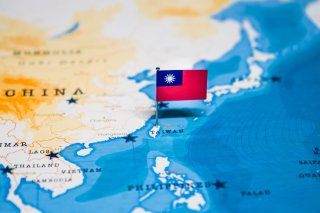Misled Confidence? Taiwan Needs a Wake-Up Call, So Does America
Both Taipei and Washington could be unwittingly seeding a potential conflict through their current actions.
In February 2023, the chairman of the House Select Committee on China, Rep. Mike Gallager, secretly visited Taiwan, highlighting the importance of policymakers visiting countries and observing first-hand the defensive preparations being made. By interacting with the Taiwanese government and military officials, Gallagher learned that consistent delays in U.S. weapons delivery to Taiwan have been frustrating the island’s leaders and negatively impacting their confidence in acquiring external defensive aid. This information is crucial for U.S. policymakers who are seeking to make informed decisions about their support for Taiwan. Moreover, while there is a perception in the United States that a potential Chinese invasion of Taiwan would play out similarly to Ukraine, stimulating defense preparation in countries where potential threats exist, analysts suggest that there is no need to panic.
In any situation, there is often a disparity between what political messaging claims and reality. Not only is the power disparity between China and Taiwan far greater than that between Russia and Ukraine, but survey results of the recent Taiwan National Security Survey, conducted by Duke University in mid-December 2022 with national representation in Taiwan, show that in an open-ended response setting, only 13.3 percent of respondents answered that they would join the army. Another 15.1 percent responded that they would resist China in some way. In the case of Taiwan’s geopolitical situation, if less than a third of Taiwanese may be as willing to fight a war of annihilation as the Ukrainians, the United States cannot afford to be ignorant of this reality.
Within the halls of American politics, a perception has developed that the Taiwanese people are not only eager to resist China but are capable of doing so after receiving the weapons through arms sales. This sentiment has been reinforced by Taiwan’s current governing party, the Democratic Progressive Party (DPP). The DPP touts programs, such as extending military service for conscripts, as evidence that the Taiwanese are determined to defend themselves. However, without a dedicated training plan in place and given China’s numerical superiority, it is unlikely such hollow gestures will meaningfully affect Taiwan’s overall combat potential. And even if it did, Taiwan would likely still decisively lose any protracted war without direct American assistance. Chest pounding with potential support from allies is an effective election tactic for any governing party but has little bearing on a nation’s actual ability to fight. While the oppositional Nationalist Party (Kuomintang) has been portrayed as soft on China and said to be subordinating itself to China’s interests, the ruling DPP tends to reinforce this perception by sharing Washington’s tough stance on China—both to satisfy U.S. policymakers and benefit electorally. This is an aspect of the situation American lawmakers must understand. If Taiwan continues down this path, the island nation could provoke an avoidable conflict that the United States could find itself drawn into.
The primary reason Taiwan should adopt a more conciliatory stance is due to the changes inside China itself. In the past, any leader’s actions that would threaten China’s position in the world would often see them ousted by the Politburo Standing Committee. However, China’s current president, Xi Jinping, has consolidated near absolute power within the Chinese Communist Party (CCP). Suppose Taiwan’s independence was perceived as inevitable by China. In that case, a war may break out regardless of whether it benefits China, as Xi cannot afford to lose Taiwan, much like Russian president Vladimir Putin’s war in Ukraine has been to the detriment of Russia. This is why provoking the CCP, as the pro-Taiwan independence camp has done for the purposes of political expediency, is such an existential threat to Taiwan’s survival. While it is true that China could manufacture a crisis to justify hostilities, it is essential that, in the eyes of the world, Taiwan is doing everything to avoid confrontation. If Taiwan is seen inviting the CCP’s wrath, it will give China control over the war narrative. Such an outcome could reduce international support for Taiwan and handicap any effort to make China accountable for its actions
For these reasons, among others, it is clear that neither major political party in Taiwan is working toward the island’s political subjugation; instead, there is a disagreement about how best to maintain Taiwan’s democratic way of living. And seeing as no one can successfully defend the island in the case of war, the most prudent solution is to ensure war does not arrive by sufficiently deterring Chinese aggression. As most of what the United States understands about the conflict across the Taiwan Strait comes from political messaging, believing that all is well is tempting. However, in this critical moment, it is a necessity that we place reality over political bravado and allow the ships of state to be steered by empirical facts rather than the misplaced confidence of ill-designing men.
Dr. Dennis L.C. Weng is an associate professor of political science at Sam Houston State University, where he teaches comparative politics and international relations with a focus on East Asia. Weng also serves as the Founding Chief Executive Officer of Asia Pacific Peace Vision Institute, a new think tank on Asia Pacific Peace Studies.
Jared Jeter is a Research Associate at Sam Houston State University.
Image: Shutterstock.

